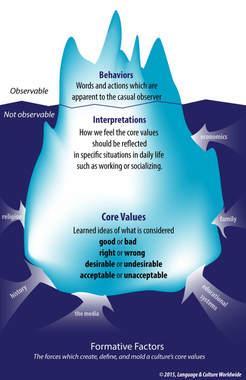 From Pauline Eichten, Beloved Community Staff Team One of our new Ends states that “we the people of Unity Church-Unitarian will create a multicultural spiritual home built on authentic relationships.” I see three significant words in that statement -- multicultural, spiritual, and authentic. How we define each of them may vary, so how do we get to the “we the people” part of this? Actually, the “we” is also significant. This is a journey we’re taking together, as a community, living into how we might create such a home. I have no answers, only questions. Lately, I’ve been pondering the word multicultural -- how would I define it? Have I ever experienced it? How do I know it if I see it? I think of the time I spent in France, studying the language at a school for foreigners. The students came from all over the world -- South and Central America, North America, Scandinavia, West and East Europe, Africa, and Asia. The culture, language and life experiences were different, yet we managed to communicate using our varying expertise with French or English, the two languages most in common. The key was being curious about differences and nimble at adapting. I learned how to navigate French cultural norms, sometimes the hard way. I remember the day I was standing on the sidewalk, waiting for a friend, and an elderly Frenchman walked by. As is my custom when at home in Minnesota, I greeted him with a “Bonjour monsieur.” He stopped, looked at me, and then leaned in to stare. I couldn’t figure out what I had done wrong, or whether he was a little crazy -- he did look at me in a scary way. Without sufficient language to apologize and explain myself, I looked away until he walked on. I later learned that to smile and greet someone you don’t know isn’t usually done in France. (Or at least it wasn’t then. Things may have changed.) I expect he was trying to determine if he knew me. I was acting on my belief that the polite thing is to greet people on the street. I was tripped up by my lack of knowledge about French cultural norms. KP Hong says being multicultural is about more than race -- it’s all the values and interpretations that lie beneath the behavior we see -- the cultural iceberg. This model says that our behaviors are shaped by our core values of right and wrong and how we interpret those values. We see someone’s behavior, but we don’t know the life experiences and values that underlie it -- those are the hidden depths of the cultural iceberg. Developing authentic relationships is one way to begin to know and understand another’s way of seeing the world and to share our own. Who knows what will come of that?
0 Comments
Leave a Reply. |
Topics
All
Beloved Community ResourcesUnity Justice Database
Team Dynamics House of Intersectionality Anti-Racism Resources in the Unity Libraries Collection Creative Writers of Color in Unity Libraries The History of Race Relations and Unity Church, 1850-2005 Archives
July 2024
Beloved Community Staff TeamThe Beloved Community Staff Team (BCST) strengthens and coordinates Unity’s antiracism and multicultural work, and provides opportunities for congregants and the church to grow into greater intercultural competency. We help the congregation ground itself in the understanding of antiracism and multiculturalism as a core part of faith formation. We support Unity’s efforts to expand our collective capacity to imagine and build the Beloved Community. Here, we share the stories of this journey — the struggles, the questions, and the collaborations — both at Unity and in the wider world.
The current members of the Beloved Community Staff Team include Rev. Kathleen Rolenz, Rev. KP Hong, Rev. Lara Cowtan, Drew Danielson, Laura Park, Lia Rivamonte and Angela Wilcox. |